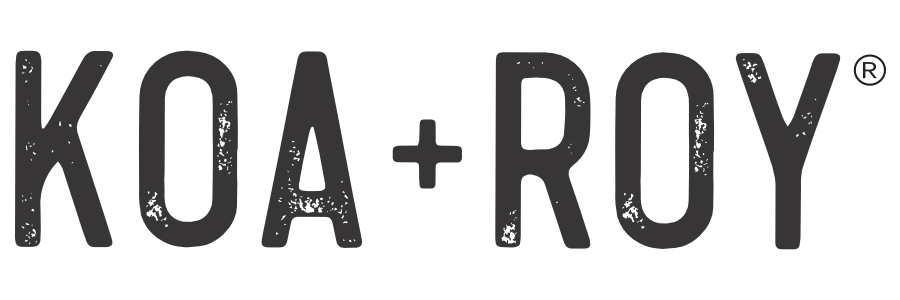
40 Year Old Male Diet Plan: Let's Get Ripped!
When it comes to your diet it can be tricky to choose the right one. With so many diets becoming more and more popular, it is easy to feel overwhelmed, confused, and even frustrated. It is important to choose one that works for you and not just because it is the latest fad or trend. For real change to happen and to be able to see real results, you have to stick to the plan long term and commit to a new lifestyle change. The most important thing to remember is that not every diet is for everyone. It is a trial and error process about listening to your body and eating what makes you feel your best.
Related articles: Home Remedies For Body Pain and Tiredness
Here is your run down and need-to-know guide for popular diets so you can find out what will work and what won’t:
Paleo Diet
The Paleo diet is also known as the “cave-man” diet as it is meant to resemble what hunters and gatherers ate thousands of years ago. It follows a diet based on eating whole foods and being very active. This diet, like many, can lead to major weight loss and significant health improvements.
So, what can I eat?
According to www.healthline.com:
- Eat: Meat, fish, eggs, vegetables, fruits, nuts, seeds, herbs, spices, healthy fats and oils.
- Avoid: Processed foods, sugar, soft drinks, grains, most dairy products, legumes, artificial sweeteners, vegetable oils, margarine and trans fats.
Avoid sugar and bread and stick to meat and tons of veggies and you will start to see some major improvements. Anything that looks like it was made in a factory, is probably not paleo. Make sure to always read ingredients lists to know for sure if it falls under the category of what to avoid.
Massage Cube For Sore Muscles
Related articles: Mental Health Issues in Sports
Keto Diet
The ketogenic diet is all about low carbs and high fat. This diet is also known to lead to weight loss and improved health. To follow keto, you have to significantly reduce your carbohydrate intake and then replace it with fat. By doing so, your body goes into a metabolic state known as ketosis. Ketosis makes your body more efficient at burning fat in exchange for energy. Blood sugar and insulin levels are known to drastically reduce from this diet.
So, what can I eat?
According to www.healthline.com:
- Eat: Meat, fatty fish, eggs, butter and cream, cheese, nuts and seeds, healthy oils, avocados, low-carb vegetables, herbs, and spices.
- Avoid: Sugary foods, grains or starches, all fruit. Beans or legumes, root vegetables, low fat, sugar-free, or diet products, some condiments or sauces, unhealthy fats, and alcohol.
It is important to base your keto diet on meat, fish, eggs, and plenty of low-carb vegetables. Reading food labels and meal prepping ahead of time can help you stay on track. Try to limit eating out at restaurants and bring your meal whenever possible.
Whole30 Diet
The whole30 diet is if you’re looking for a short-term diet that could help guide you into making healthier choices for the long term. This diet is a “30-day nutritional reset” to keep people accountable. There is no calorie counting or restricting calories involved which can promote and lead to unhealthy eating habits.
www.rush.edu says:
- Avoid: Sugar, alcohol, grains, legumes, and dairy.
- Eat: Seafood, eggs, veggies, fruit, and natural fats like vegetable oils, coconut oil, and tree nuts.
Although this diet is temporary, it can promote healthy eating habits that you can instill in your everyday life to last long term. There is also a huge social media presence around the whole30 that provides you with a support system when going through this change.
Vegan Diet
The vegan diet or “veganism” is eating completely plant-based. This diet can lead to lower cholesterol and blood pressure, and improved blood glucose levels. It is important to make sure you are still getting key nutrients when eating vegan, like vitamin B12, calcium, iron, and some omega-3 fatty acids.
www.foodinsight.org says:
- Eat: Fruits, veggies, soy, legumes, nuts, and nut butters, plant-based dairy alternatives, sprouted or fermented plant foods, and whole grains.
- Avoid: Animal foods, like eggs, dairy, meat, poultry, or seafood, and animal byproducts, like honey, lactose, whey, and casein.
Veganism has been a fad for quite some time but can work for some individuals. Whether you want to try going vegan for the perceived health benefits or are just an advocate for animal rights, make sure to avoid all meat and stick to your fruits and veggies.
Intermittent Fasting Diet
Intermittent fasting is an adopted eating pattern where you cycle through periods of fasting and eating. It has quickly become one of the most popular diet trends. This diet style is particularly popular with fitness fanatics and those that are trying to lose weight or live a healthy lifestyle. Whatever the reason, intermittent fasting can have major effects on both your body and brain. Intermittent fasting is less about what foods you should eat, and more about when you should eat them.
So, when should I eat then?
There are many methods and ways, but according to www.healthline.com the three most popular are:
- The 16/8 method: involves skipping breakfast and restricting your daily eating period to 8 hours, such as 1–9 or 12-8 or 11-7, then fasting for 16 hours in between.
- Eat-Stop-Eat: you fast for 24 hours, either once or twice a week.
- The 5:2 diet: consume only 500–600 calories on two days of the week, but then eat normally the other 5 days.
All of these methods reduce your calorie intake and lead to weight loss. The 16/8 method is usually the easiest to follow and to stick to. Intermittent fasting can lead you to reduced inflammation and insulin resistance as well as numerous other health benefits if you decide to try it.
There are many diets out there, so make sure to pick one that works for you and your body. Feeling good is the ultimate way to decide if a diet is working for you or just isn’t. And if you need more information to choose the right diet for you, check out some of our favorite health websites:
Written by Molly Cohen
Photo Credit: Rodnae Productions




Leave a comment
This site is protected by hCaptcha and the hCaptcha Privacy Policy and Terms of Service apply.